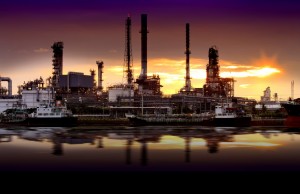 Modern manufacturing, an essential part of the global economy, has long since left the days of dark and dirty factories, having evolved into sleek, technology-driven environments. Today, manufacturing is at a critical juncture and is again facing a new paradigm shift, according to a new study that offers a glimpse into the future of factories and manufacturing.
Modern manufacturing, an essential part of the global economy, has long since left the days of dark and dirty factories, having evolved into sleek, technology-driven environments. Today, manufacturing is at a critical juncture and is again facing a new paradigm shift, according to a new study that offers a glimpse into the future of factories and manufacturing.
Based on the report’s findings, The Economist highlights some of the key ways that manufacturing is changing:
- Whereas manufacturing has traditionally been considered to be a process that turns raw materials into physical products, the physical part of production is becoming the center of a much wider value chain. “Manufacturing is no longer just about production. Production is now the core of a much wider set of activities,” The Economist explains. “Manufacturers are increasingly generating revenue from other activities, many of which are categorized as services.”
- While the move may be slow so far, manufacturers are starting to recognize that many factors previously used to justify offshoring have changed dramatically over the past few years. With wage costs rising, especially in China, and new technologies changing the economics of production, reshoring – the process wherein companies bring their offshore-outsourced manufacturing capacity back home – can make logistical business sense.
- A technological evolution is taking place in manufacturing facilities. “Computer-aided design and simulation reduces the time and cost of bringing new goods to market. Advanced robotics makes automation cheaper and more flexible,” The Economist says. “And new materials, such as nanoparticles, will give products novel properties.” Coupled with ongoing advances in 3-D printing and digital fabrication, traditional models for manufacturing are rapidly evolving to include small-scale, even DIY production.
- As natural and capital resources are constrained, pressures in the marketplace and within ecosystems occur. “In the future, companies will not be able to afford to throw things away,” Richard Lapthorne, an industrialist who led the report’s expert groups during the two-year project, said. As such, manufacturers are discovering that sustainability offers an opportunity to manage their corporate risks; differentiate their products, brand, and image; and create new value, which fosters revenue-generating growth.
The near future offers a new era of opportunity and challenges for manufacturers, driven by rapid changes in technology, new ways of doing business and
global competition. “These changes mean that manufacturing in 2050 will look very different from today,” the report makes clear.
For more information on industrial vacuum filters, including how to select the right media for the material you are picking up, please contact us or visit the DEMARCO Vacuum Accessories page.
Leave a Reply
You must be logged in to post a comment.